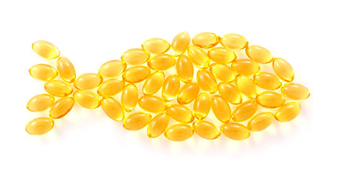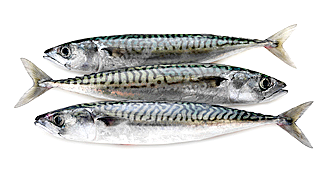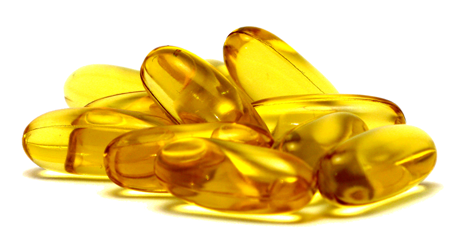Popular Articles
- 5 HTP and Anxiety
- Medications That May Interact with Seronex
- 5-HTP or L-Tryptophan
- L-Phenylalanine for Depression
- What Are Symptoms of Low Serotonin?
- St. Johns Wort Review - Anxiety and Depression
- Exulin Supplement Facts
- Seronex Supplement Facts
- 5 HTP Side Effects and Risks
- Signs and Symptoms of Serotonin Syndrome
- More Articles ...
 Feelings of Sadness and Omega 3 Fatty AcidsIn This Article
Omega-3 fatty acids are renowned for improving general health and for their wide-ranging benefits to different organ-systems in the body. These essential fatty acids can also provide some benefits in the treatment of depression. This article discusses how omega-3 fatty acids work to improve mood and remove feelings of sadness. It also summarizes the different studies that investigate the use of these fatty acids in the treatment of depression.
Omega-3 fatty acids are polyunsaturated acids also known as n-3 fatty acids. They are needed in the body for various functions such as building cell membranes in the brain, controlling blood clotting and normal growth of the body. Dietary sources of omega-3 fatty acids include fish oil, squid oil, algae oil and some plant oils such as flaxseed oil and echium oil. Omega-3 fatty acids are also available in the form of fish oil capsules. Omega-3 fatty acids are members of a larger group called essential fatty acids (EFA). They are known as essential fatty acids because they cannot be synthesized in the body even though they are required for maintaining general health. Since omega-3 fatty acids cannot be produced within the body they have to be acquired through diet. Different studies have shown that omega-3 fatty acids have anti-inflammatory properties and are useful for treating inflammation and autoimmune diseases like rheumatoid arthritis. They are also known to reduce the risks of a number of diseases including cancer, heart disease, depression, autism spectrum disorders, stroke, and myocardial infarction. Low dietary intake of omega-3 fatty acids can lead to a state of deficiency in the essential fatty acids. Some of the symptoms of omega-3 fatty acid deficiency include fatigue, brittle hair and nails, frequent cold, poor concentration, depression and lack of physical endurance. Dietary sources of omega-3 fatty acids or supplements can be used to treat omega-3 fatty acid deficiency. In addition, to prevent this deficiency, the recommended daily intake of omega-3 fatty acids can be obtained from a combination of food sources and dietary supplements. The American Heart Association recommends that healthy adults should get their omega-3 fatty acids from two servings of fatty fish every week while those with a history of heart disease should get 1 g of omega-3 fatty acids every day. For those that have a high level of cholesterol, the American Heart Association recommends 2 - 4 g of omega-3 fatty acids every day. High doses of omega-3 fatty acids may have adverse effects such as an increased risk of bleeding, hemorrhagic stroke, increased level of low-density lipoprotein (LDL) cholesterol and reduced glycemic control among diabetics. Therefore, because of the risk of bleeding, people placed on blood-thinning medications or NSAIDs (non-steroidal anti-inflammatory drugs such as aspirin) are advised to see their physicians before starting on omega-3 fatty acid supplements. Types of Omega-3 Fatty Acids Found in FoodsThere are several types of omega-3 fatty acids found in foods. The two most important ones are eicosapentaenoic acid (EPA) and docosahexaenoic acid (DHA), both of which are found in certain types of fish. The other types of n-3 acids include docosapentaenoic acid (DPA) and alpha-linolenic acid (ALA). The following are the functions of each type of omega-3 fatty acids. Docosahexaenoic acid (DHA)
It has various functions in the central nervous system which include the reduction of cellular and vascular inflammation in the brain, an increase in the production of serotonin and facilitation of the anti-aging process. In infants, it is essential for the development of healthy brain cells and visual acuity. DHA can be obtained naturally from maternal milk and fish oil or from the synthesis of alpha-linolenic acid. DHA is also available as dietary supplements. In this supplement form, it is quite effective in the treatment of heart diseases and often prescribed to patients with cardiovascular diseases. Eicosapentaenoic acid (EPA)
EPA is also available in fish oil capsules usually in combination with docosahexaenoic acid (DHA). When taken in diets or as dietary supplements, it helps to reduce the symptoms of depression and provides positive effects on high blood pressure, high triglycerides, coronary heart disease, and inflammation. In the body, EPA can also be synthesized from alpha-linolenic acid. Docosapentaenoic acid (DPA)Docosapentaenoic acid is another type of omega-3 fatty acid. Its dietary sources include fish and seal oil. DPA is an intercessor between eicosapentaenoic and docosahexaenoic acids. Unlike the EPA and DHA omega fatty acids, DPA has not been widely researched due to the limited availability of the pure compound. However, a careful review of the USDA National Nutrient Database indicates that inadequate dietary consumption and low circulating blood levels of DPA may be related to a broad range of diseases. Some of its functions include the transport and oxidation of cholesterol. Alpha linolenic acid (ALA)
Docosahexaenoic acid (DHA) and eicosapentaenoic acid (EPA) commonly found in fish oil and algae oil can synthesize from dietary alpha-linolenic acid (ALA) in the body. However, these conversions do not produce appreciable amounts of the DHA and EPA. ALA is also essential for brain health and normal growth and development. In addition, it can be used to reduce inflammation and it also prevents chronic diseases such as arthritis and heart diseases. Omega-3 Fatty Acid and DepressionOmega-3 Fatty Acid Deficiency and DepressionA number of clinical studies have established an association between omega-3 fatty acids and major depressive order. In some of these studies, low levels of omega-3 fatty acids were discovered in the blood of depressive patients. There are several ways to determine the level of omega-3 fatty acids in the human body. One way is to measure plasma and red blood cells (RBC) phospholipids. Although they are not identical, significant correlations exist between the amounts of phospholipids in the brain and blood. Omega-3 fatty acids are important components of membrane phospholipid in the central nervous system. They are incorporated into the acyl chains of these membranes and are therefore essential to the dynamic structure and function of neuronal membranes. In the body, proteins have important cellular functions as they act as transporters and receptors. Extracellular proteins such as insulin act by transmitting a signal from the cell in which they were synthesized to other cells while a membrane protein acts as a receptor for binding signaling molecules. Because these proteins are stored in the lipid bi-layer of the cell membrane, omega-3 fatty acids can alter membrane fluidity (viscosity of the lipid bi-layer) by displacing cholesterol from the membrane, thus providing optimal fluidity which is essential for neurotransmitter binding and signaling within cells. Basically, this means that omega-3 fatty acids can increase communication between brain cells. Furthermore, this effect of the fatty acids stimulates and improves the activities of neurotransmitters, such as serotonin and dopamine, which are key agents in the improvement of mood. Omega-3 Fatty Acids, Cytokines and DepressionAnother way in which omega-3 fatty acids may contribute to mood and improve depressive symptoms is through cytokines. Cytokines are small cell-signaling molecules that are secreted by various cells and are used widely in intercellular communication. These cytokines are known to have direct or indirect effects on the central nervous system. Their functions include the enhancement of cellular immune responses and antibody responses. The adverse effects of high levels of cytokines include the alteration of the metabolism of neurotransmitters and reduced availability of the precursors of neurotransmitters. A significant number of studies have also shown the association between depression and cytokines. For example, researchers have shown that high levels of cytokines are highly correlated with the severity of depression. Psychological stress, a known cause of depression, has also been shown to increase the level of cytokines. Omega-3 fatty acids are well known to inhibit the production of these proinflammatory cytokines. In addition, the anti-inflammatory property of omega-3 fatty acids increases the production of brain-derived neurotrophic factor (BDNF) in depression. BDNF is a secreted protein that acts on certain neurons in the central nervous system. It enhances the growth and development of neurons and synapses in the brain. Studies on Omega-3 Fatty Acids and DepressionIn 2003, a study published in the journal, European Neuropsychopharmacology, investigated the effects of omega-3 fatty acids on major depression when used along with antidepressant drugs.
The participants’ mental statuses were measured before and at the end of the study on the 21-item Hamilton Rating Scale for Depression. The results showed that patients in the omega-3 fatty acid group scored lower on the Hamilton Rating Scale than those in the placebo group. The study demonstrated that omega-3 fatty acids can be used to improve the symptoms of major depressive disorder and that these essential fatty acids are well tolerated. Biological Psychiatry StudyAnother study published in the journal, Biological Psychiatry in 1998 investigated the effect of depletion of omega-3 fatty acid levels in red blood cell membranes of depressive patients. For this study, 15 depressive patients and 15 healthy control subjects were recruited. The fatty acid composition of phospholipid in the cell membranes of the recruits was measured from their red blood cells. The results showed that depressive patients had significant depletion of total fatty acids, especially docosahexaenoic acid (DHA), in their cell membranes. However, the incubation of red blood cells from control subjects with hydrogen peroxide eliminated all significant differences between the controls and the patients. This study also showed that the red blood cell membranes found in depressive patients showed evidence of damage by oxidation. This study demonstrates that:
However, not every study investigating the benefits of omega-3 fatty acids in depressed patients has been positive. The American Journal of PsychiatryIn a study published in The American Journal of Psychiatry in 2004, the association between the dietary intake of omega-3 fatty acids and major depression was explored. This study involved a large group of 29,133 men within the ages of 50 to 69 years. The intake of fatty acids and fish consumption by the participants was recorded with diet history questionnaires. Then that participants’ hospital records were obtained from the National Hospital Discharge register. The researchers were looking for histories of major depressive disorders. The results showed that there was no relationship between the dietary intake of omega-3 fatty acids or fish consumption and major depression. In another study published in The American Journal of Psychiatry in 2003, the effect of omega-3 fatty acid docosahexaenoic acid (DHA) in the treatment of major depression was investigated in a double-blind placebo-controlled study. The 35 recruited patients suffered from major depressive disorders and were all randomly assigned to receive either 2 g/day of DHA supplement or placebo for 6 weeks. The patients’ responses to treatment were measured by the Montgomery-Asberg Depression Rating Scale. During the course of the study, 18 patients were given DHA while the other 17 received placebo. The results showed that the response rate in the DHA group was 27.8% while the placebo group had 23.5%. Since the difference in response rate between the two groups did not reach statistical significance, the results failed to show a positive effect of docosahexaenoic acid monotherapy on subjects with major depression.
Sourceshttp://www.omega3-drho.com/Omega3FattyAcidComponents.html http://www.webmd.com/healthy-aging/omega-3-fatty-acids-fact-sheet http://www.healthcastle.com/omega3.shtml
[+] Show All
|
| Next Article: 5 HTP and Heart Issues |





 DHA is a primary structural component of the brain, cerebral cortex, skin, sperm, testicles, and retina.
DHA is a primary structural component of the brain, cerebral cortex, skin, sperm, testicles, and retina. EPA can be obtained in the human diet rich in oily fish such as herring, mackerel,
EPA can be obtained in the human diet rich in oily fish such as herring, mackerel,  Dietary sources of ALA include seed oils such as rapeseed oil, soybean oil, walnut oil, flaxseed oil, and hemp oil. It is also available as dietary supplements.
Dietary sources of ALA include seed oils such as rapeseed oil, soybean oil, walnut oil, flaxseed oil, and hemp oil. It is also available as dietary supplements. For this study, 28 patients with major depressive orders were recruited in an 8-week double-blind, placebo-controlled trial. Each of the patients received either 9.6 g of omega-3 fatty acids or a placebo daily along with an
For this study, 28 patients with major depressive orders were recruited in an 8-week double-blind, placebo-controlled trial. Each of the patients received either 9.6 g of omega-3 fatty acids or a placebo daily along with an